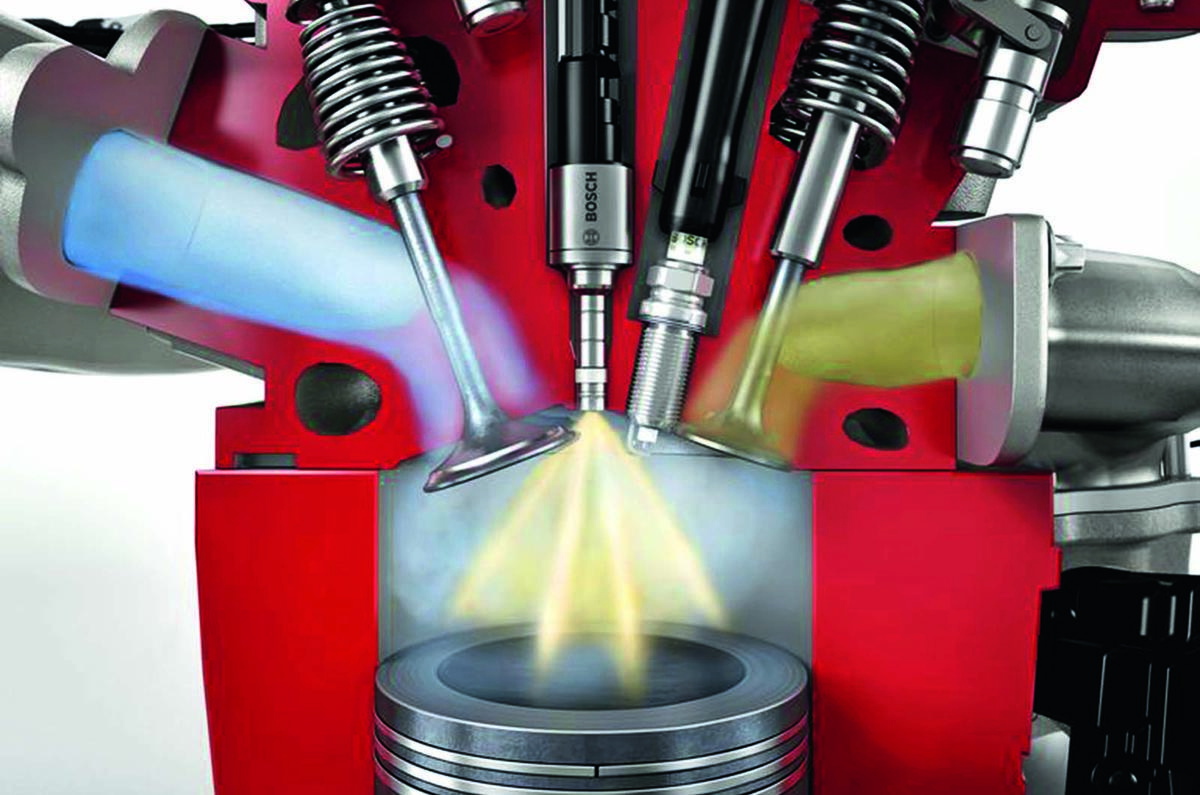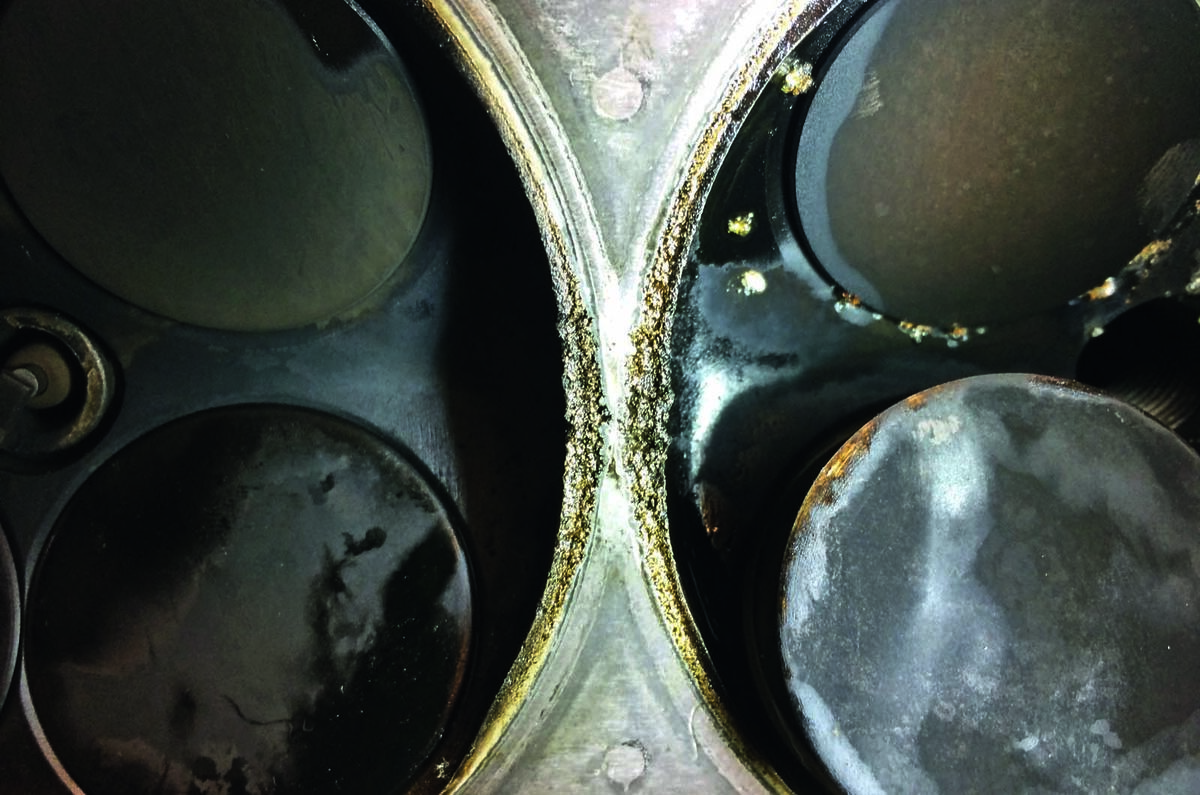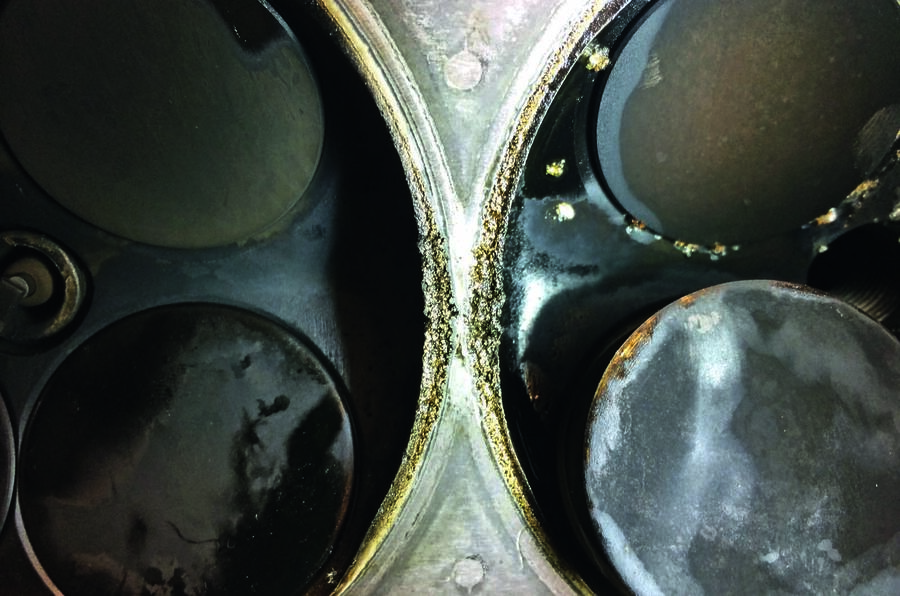When you pull into your local filling station, chances are there will be two types of petrol on offer: the cheaper premium grade and pricier super unleaded. So what’s your poison? Go for the super just because it sounds like a good idea, or be thrifty and stick with the premium?
The most significant difference between the two is the research octane number (RON) of the petrol. The octane rating tells you how resistant the fuel is to detonation, known as knocking or pinking. In a petrol engine, petrol is mixed with air, then it’s compressed and ignited by a spark. When that happens, the mixture burns outwards from the point of ignition like a grassland fire (but faster). The burn should be smooth and controlled, but if the mixture is compressed too much, random pockets of the mixture spontaneously detonate too early. It’s audible and can make a sound like dried lentils being poured into a tin can, or a diesel-like knocking noise.
A key way of increasing a petrol engine’s performance is by raising the compression ratio, or in a turbocharged engine increasing the boost – or both. Either one increases pressure inside the combustion chamber when the fuel ignites. In older engines, the threshold at which detonation became a threat had to be carefully managed by engine designers and tuners, especially when turbos came along. Then back in 1982, Saab’s engine genius, Per Gillibrand (known as ‘Mr Turbo’), dreamed up Automatic Performance Control. APC listened for the onset of knock by using a microphone attached to the cylinder block – a knock sensor – and monitoring boost pressure and engine revs.
Today petrol engines use similar anti-knock systems, but thanks to much faster processors in engine computers they can also use algorithms to predict when knock will occur. Naturally aspirated engines delay the point at which combustion is triggered (retarding the ignition) if knock threatens, all of which brings us back to the question of whether you need to fork out the extra dosh for super unleaded.
The answer is, there’s only one real reason to and that is because your car has a high-performance engine or the handbook explicitly says you should use it. Using fuel of a higher octane than your engine needs or can benefit from won’t hurt it, only your wallet.
The difference between premium and super unleaded at the UK forecourt these days is a maximum of two points (97 octane versus 99) and the chance of a modern engine being damaged by the lower of the two is nil. However, the engineers calibrating higher-performance engines and chasing the best performance numbers are likely to have done so using the highest-octane pump fuel available.
The higher octane allows the engine to use a higher boost pressure and more aggressive settings to pump out a little more power. With the lower octane, it may back off those settings a tad to stay below the knock threshold. Whether you can notice the difference subjectively, though, is down to how attuned you are to your car.






Join the debate
James Dene
Check your own work please
Reseach Octane Rating clearly doesn't translate as RON as suggested in the very first paragraph of explanation. The N as most will guess, represents Number. There are too many of these obvious technical and writing errors.
Blue328
Cost difference
BP push Super by claiming "up to 21 extra miles per tank". My car will do about 400 miles on a tank, so the benefit of Super is 5% at best. BUT the price is 10% higher!
LP in Brighton
Super unleaded fuel missold for decades
Congratulations on being one of the few journalists to appreciate and write about the benefits of superunleaded fuel. In my view this fuel has been deliberately missold by companies like Shell for around 20 years, falesely implying benefits (and in particular improved fuel consumption) for its use in all engines. This article is one of the few that correctly states that its use should be confined to high performance engines capable of exploiting its benefits.
Peter Cavellini
Minimal benefit.
I used to use super years ago, I saw only a One Mile Gallon increase, so at best I was saving half a Gallon per Tank, so yes, about and extra 20 miles, so, went back to the cheaper stuff, money saved paid for other life style stuff.
Big Jeff
95?
I thought standard unleaded was 95 RON, not the 97 stated here.
Shrub
Works for me
Tested many times comparing full tanks on similar journeys and I get 2-3 mpg more from high octane in a tsi engined Yeti. Extra 30 miles for about £3.50 depending on the brand. It's not really here or there but the car runs well on it so I use it for that car.
eseaton
A very poorly researched
Firstly, regular fuel in the UK is 85 RON not 97 RON.
To get that wrong exposes a complete lack of subject knowledge.
Secondly, the article makes no mention whatsoever of the other benefits so clearly stated by the producers - in particular the cleaning and preservation qualities.
BP converted a V6 to run one half on regular and one half Ultimate for a lifetime. Exposed for viewing afterwards, the difference is remarkable.
scotty5
Egg on face time
At least Autocar were only 2RON out, you're out by 10RON ! A gigantic lack of subject knowledge?
eseaton
Typo. Silly me.
chandrew
Manufacturer recommendation
I would be interested in knowing what to do if (as is the case for many high performance turbocharged cars) the manufacturer recommends only using the higher-rated fuel. This article doesn't seem to cover this case.
Pages
Add your comment